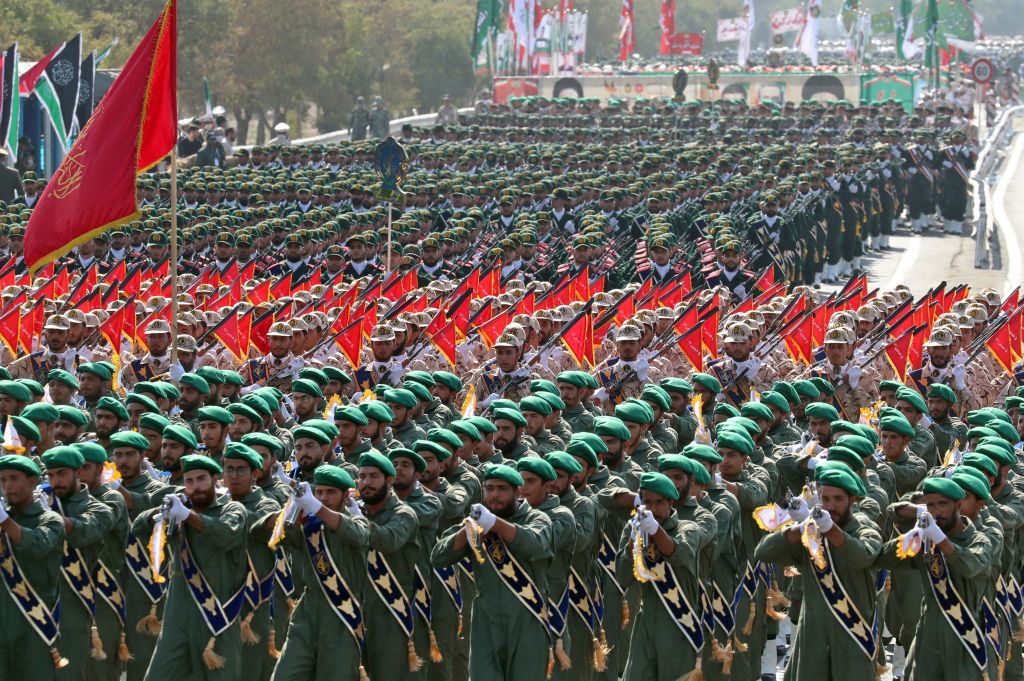
As we observe the twentieth anniversary of the Iraq War, which claimed more than 4,600 American lives and countless Iraqis, we must make an honest assessment of the war. The war cost the U.S. trillions, upended Middle East stability, and ultimately benefited Iran’s aggressive and expansionist agenda by capturing much of the political and military institutions in Baghdad and Damascus. Despite its tremendous cost, the war weakened America’s geostrategic position and damaged our national credibility.
What can be learned from this calamity? As authors of the U.S. government’s definitive study on the Iraq War, two somewhat conflicting central points stand out. First, the war should never have occurred. Second, once the war began, it should not have been abandoned without leaving behind a stable Iraq, even if that meant staying for years.
Invading Iraq in 2003 was strategic folly and one of the worst foreign policy decisions in the history of the Republic. Tainted and inaccurate intelligence provided justification for disarming Saddam Hussein of weapons of mass destruction that didn’t exist. Pretending that Iraq could be the hearth for democracy in the Middle East or that it was abetting Al Qaeda terrorists were similar delusions. But the decision to invade defied an even larger truth, one that was clear even before the war. Iraq provided a physical and practical buffer to Iran, a country that few disputed had an active weapons of mass destruction program in 2003 and which has consistently demonstrated the intent to use such a capability alongside its terrorist objectives.
Iran, which regularly calls for the destruction of the U.S. and actively supports our enemies, was the larger and clearer threat to our interests both then and now. Regime change in Iraq destroyed a status quo that, by extension, benefitted the U.S. In essence, Iraq’s geostrategic position in 2003 helped regional security by focusing Iran’s attention and resources next door. In addition to this geopolitical damage, the preemptive invasion, conducted without U.N. Security Council authorization and on the basis of dubious intelligence, squandered our international standing and goodwill, which was abundant in the wake of 9/11.
Read More: There Were Many Ways to Die in Baghdad
Once the invasion occurred and Iraq’s security forces evaporated those same considerations should have driven U.S. policy to restore the country’s stability, vis-à-vis Iran. The region represents a vital strategic interest for the U.S., as does blocking the expansion of Iranian influence. Unfortunately, the U.S. chose to ignore this reality and when politically expedient, withdrew from Iraq and hoped for the best. Beyond the error of the initial invasion, withdrawing was nearly as significant a strategic error, placing Iraq’s future into the hands of a corrupt and sectarian Prime Minister who was intent to establish Shia domination and Iranian alignment. While Iraq’s condition had improved significantly since 2003, sufficient signs existed in 2011 that progress was fragile. Prime Minister Nouri al Maliki’s sectarianism and authoritarianism, toxic components that would lead to further destruction of Iraq, had been on full display and reported to Washington. Iraq, shattered by decades of war, sanctions, and corruption, needed longer to heal and needed American help to prevent an Iranian takeover.
Although we had decided that we were done with Iraq and all its associated challenges, Iraq wasn’t done with us. American strategic myopia enabled Maliki’s government to kill or disenfranchise Sunnis and financially isolate the Kurds, paving the way for the rise of ISIS and a return of U.S. forces. We are still in Iraq today, and still without a status of forces agreement that was used for political cover to end our military presence in 2011. But today’s Iraq looks very different. Iranian-backed militias, on the Iraqi payroll, now outnumber the Iraqi Army. The Ministry of Defense now includes officers and generals who are designated terrorists. Iranian aligned militias have captured state resources through political representation in Parliament and by controlling key posts in lucrative ministries. Iran’s influence now waxes in an uninterrupted arc from Tehran to the Mediterranean, traipsing across Iraq, Syria, and Lebanon.
Retaining U.S. forces in Iraq would have been a difficult decision for a war weary America. But a residual force that was closely tied to key political objectives and aimed at reducing Iranian influence could have prevented the treacherous strategic situation we face today: Iraq as a broken and devastated nation, serving as a base and transit point for Iranian forces. Luckily, the U.S. retains some tools to steer Iraq to a more constructive and stable future. The U.S. can impose high economic costs on the Iraqi military and government to remove Iran-backed terrorists from its payroll, withhold U.S. banknote transfers that inexplicably continue despite their laundering by Iran, and remove sanctions waivers so Iraq can free itself from an artificial energy dependence on Iran. And perhaps most importantly, the U.S. must militarily deter Iran so that it retracts rather than expands its regional aggression. Only these measures are likely to reverse the tailspin of Iraq’s perilous future, a future that we set in motion twenty years ago.
More Must-Reads from TIME
- Cybersecurity Experts Are Sounding the Alarm on DOGE
- Meet the 2025 Women of the Year
- The Harsh Truth About Disability Inclusion
- Why Do More Young Adults Have Cancer?
- Colman Domingo Leads With Radical Love
- How to Get Better at Doing Things Alone
- Michelle Zauner Stares Down the Darkness
Contact us at letters@time.com